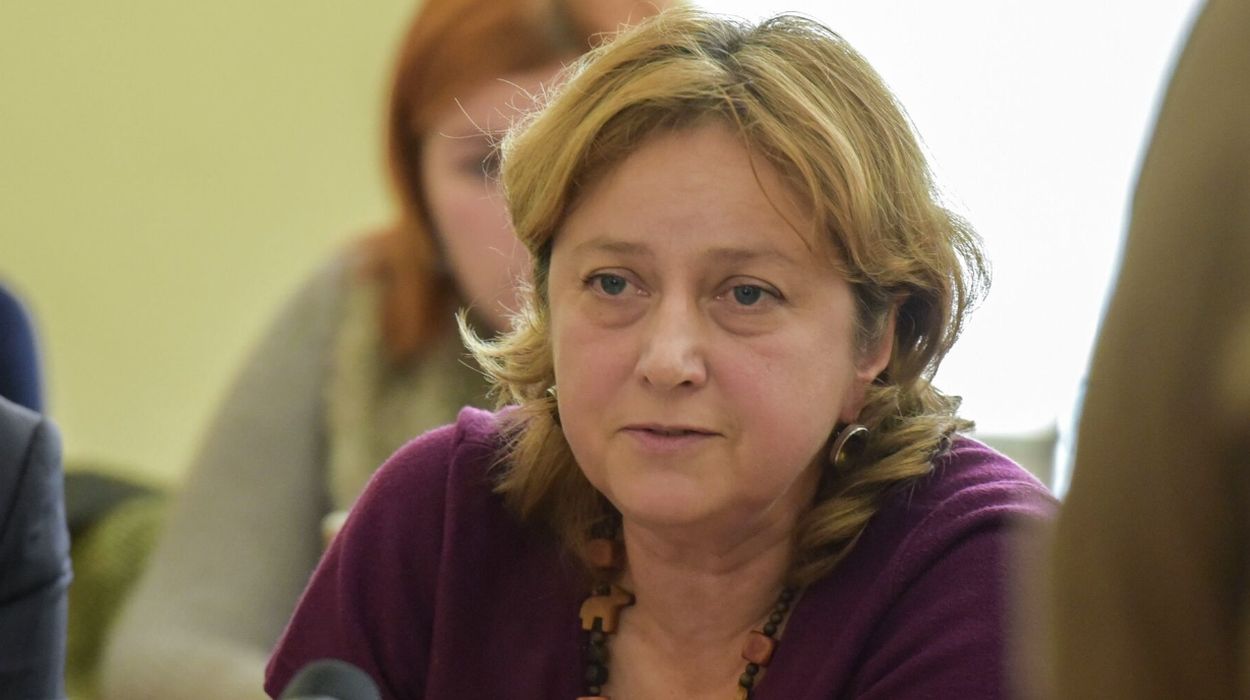Arda Inal-ipa: "The Priority is to Break the Vicious Cycle of Unconstitutional Actions"

Arda Inal-ipa, Director at the Centre for Humanitarian Programmes in Sukhum.
The opposition rally that took place on May 30 in Sukhum has brought several aspects into sharp focus: the strategies employed by government adversaries, the projections for the political landscape of Abkhazia in the approaching autumn, and more. Arda Inal-ipa, Director of the Center for Humanitarian Programs, shares her insights on these matters with the "Ekho Kavkaza” (Echo of the Caucasus).
Despite the ebbing wave of fervent online discussions within the Abkhazian community regarding the course and implications of the anti-government rally held on May 30, experts continue to mull over the prospective evolution of the country's internal political struggle.
In a conversation with the "Ekho Kavkaza", Arda Inal-ipa, Director of the Center for Humanitarian Programs, accentuated the peaceful nature of the one-day protest action, providing her rationale:
"For many years, Abkhazia's political landscape has been dynamic, with its fair share of intensity and turbulence, a fact that was revalidated this spring. The rally on May 30, orchestrated by Adgur Ardzinba, the leader of "Abkhaz People’s Movement", who rallied his supporters, was a case in point. The government's response was marked by apprehension over potential destabilisation, evidenced by the unprecedented establishment of protective barriers. However, the orderly execution of the rally, I believe, marks a new phase. It is my earnest hope that our politicians appreciate the perilous implications of escalating confrontations and the potential devolution of intense dialogues into destructive courses of action, particularly given the fraught geopolitical conditions we currently navigate. There's an understanding that unconstitutional methods of power transition, which have repeatedly occurred in Abkhazia, significantly raise the stakes. Subsequently, any incoming regime finds itself heavily bound by obligations to its supporters who have transgressed the law. Therefore, the fact that the opposition leaders underscored the peaceful nature of the action, assuring its conclusion within a day, is of tremendous importance. Their commitment to express grievances towards the authorities during the summer not in the form of rallies but within the ambit of discussions, round-table meetings, and similar forums is commendable. Come autumn, protests may possibly manifest more actively. The emerging recognition of the perils of escalating confrontations by other opposition movements, who deemed it unwise to partake in this rally, also marks a new development. This includes groups such as "Aidgylara" and others who, despite not joining the rally, find common ground with "AND" on many demands."
Inal-ipa contends that citizens harbour a host of grievances against the ruling authority:
"Indeed, a substantial number of complaints have piled up against the government. These grievances predominantly revolve around the issues that the current ruling team had pledged to address in their program. There's a palpable sense of disappointment among people who were anticipating the redistribution of powers, a reduction of the administrative machinery, and the establishment of a land cadastre to constrain haphazard land distribution."
Yet, she posits:
"When, as was the case on May 30, a comprehensive list of substantial demands is made, it can appear rather daunting. I believe that if the protests had been concentrated on one or two key issues, they might have wielded a greater impact and instigated a more profound dialogue with the authorities. I sincerely hope that come autumn, the dialogue will revolve around these pressing issues, rather than merely focusing on the notion of power transition.
Indeed, many viewed the situation with a hopeful eye, anticipating that this might be a pivotal juncture, marking the end of the relentless cycle of forceful decisions dominating the internal political battle. However, the most radical factions of the opposition raise the argument that the administrative resources are now so deeply intertwined in the election process that it is virtually insurmountable...
— I recognise the concerns surrounding the use of administrative resources. This was a feature of our previous elections and can be expected in future. However, we possess the legal right for public participation in the observation process. This, I argue, is a powerful tool, and it is possible to seriously prepare for elections by rallying a broad segment of society around the "For Fair and Open Elections" movement. The law offers us this opportunity. I contend that the crucial task is to overcome, as it were, our own limitations, in order to break this pernicious cycle of unconstitutional actions.
Currently, one of the alternatives under consideration within the opposition is to propose that the president conduct a referendum on early termination of his tenure. What are your thoughts on this?
— The incumbent president himself initially proposed this idea. It wasn't realised then, but I was supportive, as I believed it was preferable to hold a referendum rather than resort to street protests, large-scale rallies, and the like. This is entirely within the bounds of law..."
"But now the president has a fairly solid rationale for refusal: there's only a brief span of time left before the next presidential elections. Does it make sense to pursue this..?
— Yes, it does, especially when taking into account societal apprehensions about decisions taken by power structures, which could have detrimental long-term repercussions. I believe that if those in power wish to avoid such upheavals associated with an early transition of power, they must acknowledge and address societal concerns on issues such as the agreement on the state residence "Pitsunda", the future trajectory of our energy sector, and the potential demographic shifts linked to the ongoing large-scale apartment construction, even though legislation on this matter is yet to be ratified."
This news was published by Ekho Kavkaza and is translated from Russian.